












bold vision to revitalise infrastructure in KwaZulu-Natal
DG Maluleke on championing a disability-inclusive society
8. Conversations with leaders
KwaZulu-Natal Public Works and Infrastructure MEC
Martin Meyer’s bold vision for the province
12. Women in the public sector
Department of Women, Youth and Persons with Disabilities Director-General Mikateko Joyce Maluleke
reflects on 30 years of protecting persons with disabilities
14. Trailblazer
Council for Scientific and Industrial Research Biochemist
Zama Duma is making the world a greener place
16. Profiles in leadership
Land and Agricultural Development Bank of South Africa
CEO Themba Rikhotso is restoring a vibrant agricultural sector
20. Office of the President
Rail must be the backbone of public transport in South Africa

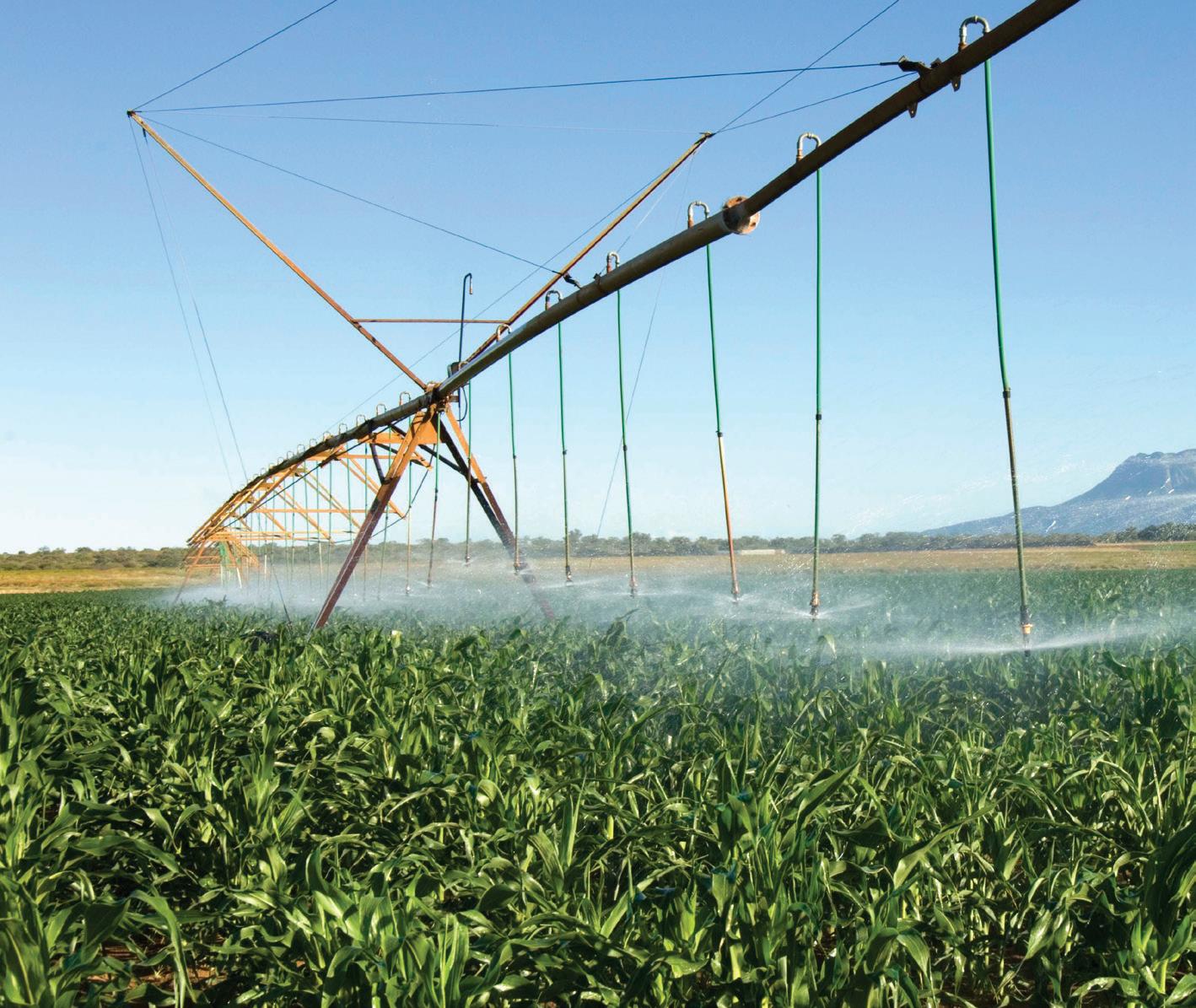

22. Close the digital divide – clear message from ICEGOV 2024 Inclusive Artificial Intelligence at the heart of electronic governance
24. Home Affairs announces a new five-year strategic vision Plans underway for citizens to access vital services from home
26. The role of government and faith action in ending GBVF Government and faith-based community collaboration vital in the fight against gender-based violence and femicide

30. SA reaffirms commitment to gender equality and women’s empowerment
South Africa takes over Chairship of the G20 Women’s Empowerment Working Group Ministerial Meetings in Brazil

32. Lamola calls on African leaders to help end wars on the continent
International Relations and Cooperation Minister Ronald Lamola reiterates SA’s commitment to silencing the guns in Africa
34. Municipalities in Gauteng building a capable, ethical and developmental local government Municipalities must play a central role in representing and caring for their communities, writes Gauteng Department of Cooperative Governance and Traditional Affairs HOD, Dr Darian Barclay

Public Sector Manager THE MAGAZINE FOR PUBLIC SECTOR DECISION-MAKERS
Publishers: Government Communication and Information System (GCIS)
Enquiries: +27 012 473 0010
Switchboard: +27 012 473 0000
Tshedimosetso House: 1035 Francis Baard Street (corner Festival Street), Hatfield, Pretoria Private Bag X745, Pretoria, South Africa, 0001 www.gcis.gov.za
Acting Director-General Nomonde Mnukwa
Acting Deputy Director-General: Corporate Services Terry Vandayar
Deputy Director-General: Intergovernmental Coordination & Stakeholder Management Michael Currin
Deputy Director-General: Content Processing & Dissemination Regomoditswe Mavimbela
Head of Editorial and Production
Zanele Mngadi Zanelemngadi@gcis.gov.za
Managing Editor Tshepo Nkosi tshepon@gcis.gov.za
News Editor Miriam Mokoena miriam@gcis.gov.za
GCIS Photographic Unit
Elmond Jiyane
Ntswe Mokoena
Siyabulela Duda Kopano Tlape Busisiwe Malungwane
Production Assistants Jauhara Khan | Nonjabulo Ntuli
Graphic Designer Tendai Gonese
Use a local online platform to support local designers
Enjoy the timeless pumpkin fritter and mango salsa recipe this summer
Mapungubwe National Park: A tale of a city that once was

In any society, the socio-economic empowerment of teenagers is inextricably linked to, and a precondition for, fostering healthier, just, equitable, and prosperous communities. It is the responsibility of a caring and developmental state to provide sufficient resources and enough opportunities to young women
from all walks of life in a way that guarantees their current and future well-being.
Global experiences clearly show that, when empowered and protected from predatory contexts, young women carry the potential to guarantee a healthy existential continuum of our society in a manner
that contributes immensely to nation-building, nation management, and national development. The youth, after all, are a strategic resource and, to a large extent, an intellectual reservoir of ideas essential for moving South Africa forward.
While the current socio-
economic conditions pose a direct threat to national stability and undermine our future prospects, it is not the youth who are a threat to our current and future wellbeing. Rather, it is the conditions under which they continue to exist that create opportunities for both known and unknown

threats to emerge and become institutionalised. Without a more purposeful, quantifiable, and deliberate investment in their potential and capabilities, South Africa will not be positioned to reap the benefits of its demographic dividend.
By addressing the root causes of adolescent pregnancy, we can reduce poverty, improve social well-being, increase economic participation, enhance innovation, and cultivate a more skilled and productive population. Their empowerment will ultimately contribute to the kind of growth that is shared, far-reaching and sustainable.
Currently, South Africa's population stands at approximately 61.4 million, with the majority residing in Gauteng, KwaZuluNatal, and the Western and Eastern Cape. Between 1996 and 2022, our youth population grew from 14.7 million to 21.6 million, an increase of 6.9 million, or 38.6%. However, the age group of 15 – 19 years has
shown the least growth during this period.
Adolescents aged 10 –19 comprise 17.4% of our population, contributing to 2.1% of total mortality. These young people grapple with numerous challenges, including high rates of unemployment, poverty, crime, gender-based violence and femicide, and significant mental health issues. Disturbingly, Statistics South Africa reports that 35.4% of children – one in three – have faced some form of sexual abuse.
Adolescent pregnancy remains a pressing issue, particularly among girls aged 10 –19, and poses serious health and social challenges. The factors driving this phenomenon are complex and multifaceted. Globally, about 16 million girls aged 15 to 19 give birth each year, representing approximately 11% of all births worldwide. Effective interventions are necessary to combat teenage pregnancy, including strengthening family structures, enhancing community safety and ensuring equitable access to education.
Adolescent girls with unintended pregnancies face heightened risks of health complications, including eclampsia

and premature labour, and are more susceptible to unsafe abortions and adverse maternal health outcomes. The Constitution of the Republic of South Africa, 1996 guarantees teenagers the right to access sexual and reproductive health care, supported by laws that facilitate access to contraceptives. Preventing teenage pregnancy requires a multifaceted approach, including comprehensive sex education and programmes that boost selfesteem, enabling young women to make informed choices about their lives. To truly empower adolescent girls, we must provide strong support in their experiences of health, education and overall well-being.
Government is committed to implementing the National Contraception Policy within educational institutions, ensuring alignment with the South African Schools Act of 1996, to promote consistent prevention messaging.
The socio-economic empowerment of teenagers not only benefits individuals but also supports our collective pursuit of the United Nations Sustainable Development Goals by fostering youth empowerment programmes, enhancing academic achievements, and promoting self-efficacy and economic independence among young women and girls. Through a comprehensive social sector compact, we can target our efforts to support teenagers systematically, creating a positive cycle of development that educates and economically empowers them, ultimately reducing poverty in our country.
Government is taking decisive steps to address teenage pregnancy by fostering social cohesion as a foundational element for inclusion. We aim to ignite a sense of purpose among our youth, stimulating innovation and creativity for a better tomorrow. ❖
Over the past 30 years, South Africa has come a long way in creating a country that respects and honours women’s rights. Today, women are represented in every sphere of society, and even in roles that were previously only the domain of men.
At the dawn of democracy in 1994 we inherited a deeply divided society, with profound socioeconomic and racial disparities. Women were mostly relegated to the fringes of society.
The powerful impact of women on our nation was demonstrated on the 9th of August 1956 when South African women marched against discriminatory apartheid laws.
Thanks to the resilience of women, the pass laws were later abolished, and it was proven that when “you strike the women, you strike the rock”.
We applaud the strength, determination and bravery of
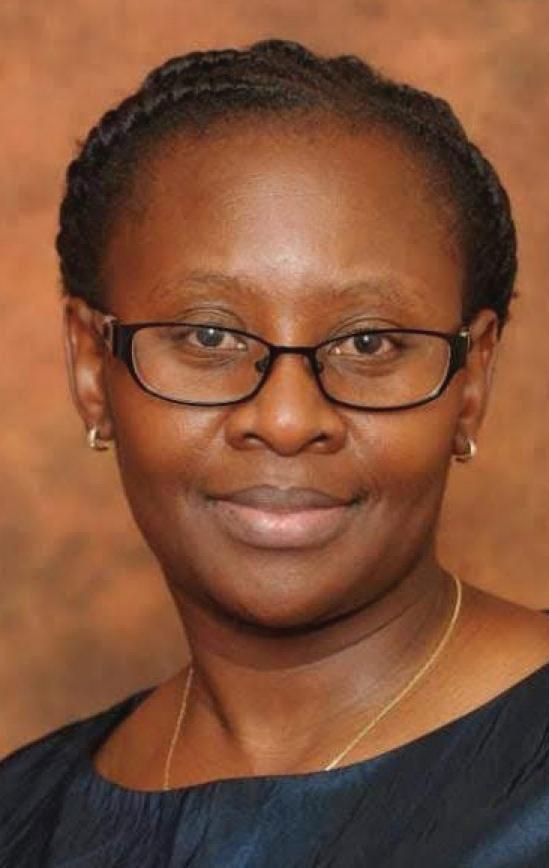
Nomonde Mnukwa, GCIS Acting Director-General.
the women who came before us. Their selfless actions helped to pave the path for our democracy and its manifold opportunities. Today, the Bill of Rights guarantees equal treatment for all South Africans and prohibits unfair discrimination based on race, gender or sex.
As a society we should be proud of all we have achieved since 1994, however, we continue to face the scourge of
violence against women and children.
In the words of President Cyril Ramaphosa: “The unacceptably high levels of gender-based violence and femicide in South Africa are a blight on our national conscience, and a betrayal of our constitutional order for which so many fought, and for which so many gave their lives.”
According to the 30-Year Review of South Africa’s Democracy 1994-2024, published by the Department of Planning, Monitoring and Evaluation, “Women economic empowerment is defined as both the ability to succeed and advance economically, and the power to make and act on economic decisions”.
President Cyril Ramaphosa has over the past five years reiterated government’s commitment to supporting women entrepreneurs. Through the Preferential Procurement Policy Framework Act of 2000 and preferential Pro -
curement Regulations of 2022, government has committed to setting aside 40% of public procurement for women-owned businesses. Ensuring women’s full participation within the economy is essential to achieve equity, prosperity and shared and inclusive growth.
Further, women entrepreneurs benefit from targeted government funding initiative such as the National Empowerment Fund’s Women Empowerment Fund, which provides funding of R250 000 to R75 million for businesses owned by black women, across a range of sectors.
Programmes such as the SheTradesZA platform were introduced to assist women-owned businesses to participate in global value chains and markets. Through the SheTradesZA Hub, women entrepreneurs are given an opportunity to increase their international competitiveness and gain access to national,
regional and global markets.
Government has made significant progress over the past 30 years of democracy, with the number of women – particularly African women – in senior management positions nearly tripling, especially in the last two decades.
The National Strategic Plan (NSP) is a government and civil society’s multi-sectoral strategic framework to realise a South Africa free from gender-based violence and femicide. It recognises all violence against women (across age, location, disability, sexual orientation, sexual and gender identity, nationality and other diversities) as well as violence against children. The NSP is premised on the equality of all gender groupings including the LGBTQI+ community - and affirms that accessing services is human rights-based.
Government has dedicated R21 billion to implement the NSP which includes women empowerment, psychological support, legal reforms and provision of evidence kits at police stations.
The NSP is further strengthened by various new legislation that has been enacted to strengthen the criminal justice system, promote accountability across the state and support survivors. The Criminal Law (Sexual Offences and Related Matters)
Amendment Act Amendment Act 13 of 2022, The Criminal and Related Matters Amendment Act 12 of 2022, and The Domestic Violence Amendment Act 14 of 2022 are key interventions of the National Strategic Plan on Gender Based Violence and Femicide.
These new laws increase protection for victims of genderbased violence and femicide and further prevent perpetrators from escaping justice. Amongst others, the new legislation tightens bail conditions, strengthens parole conditions, ensures consequences for contravening a protection order, as well as increasing the minimum sentence for perpetrators of sexual offences.
Government has also increased the number of sexual offences courts and various specialised units within the SAPS. Direct support is provided to victims through Thuthuzela and Khuseleka Care Centres, which provide survivors of GBVF with various services such as psychosocial support and trauma counselling, health care, police services, and legal assistance.
Laws such as these are designed to empower women and to provide pathways for women to liberate themselves from abusive relationships. Empowering women is one of the important
levers in fighting the prevalence of GBVF.
While these laws and policies aim to empower women, effective implementation is vital. Government, through institutions like Statistics South Africa (Stats SA), conducts research to identify existing gaps that require attention. As decision-makers in the public sector, we have a responsibility to heed these insights and direct our efforts accordingly.
According to the Gender Series Volume XI: Women Empowerment, 2014 – 2024 report published by Stats SA in August, women in South Africa are more likely to be unemployed than men and are less likely to participate in the labour market than their male counterparts.
The report highlights that the percentage of women in middle management positions rose from 45.2% in 2019 to 46.4% in 2023, while senior management roles saw an increase from 42.4% to 45.2% over the same period.
According to the same report, the country is making significant strides in the political arena regarding women’s empowerment. Representation of women in parliament increased from 33.0% in 2004 to 42.8% in 2024, while women in the National Council of Provinces rose from 41.0% to 44.4%.
It further notes that “achieving
gender equity in decision-making positions – both in government and the private sector – is crucial to providing females with responsibilities for planning, making decisions, recommending policies, and coordinating empowerment efforts”. As we fill vacant positions, it is crucial to remember that gender equity is a fundamental aspect of the government’s commitment to leaving no one behind.
This understanding underscores why governments worldwide and organisations such as the United Nations (UN) prioritise women's empowerment in their policies.
South Africa is part of the AU Circle of Champions, which is an association of African Heads of State who have committed to implementing programmes at a national and continental levels that promote positive masculinity and encourage more men and boys to be part of the fight against gender-based violence.
Let us strive to be part of the solution to end discrimination against women and GBVF by implementing and supporting programmes that empower women. Together, we can ensure that women are not placed in vulnerable positions, fostering an environment where they can contribute fully to society. ❖
Writer: Sihle Manda

KwaZulu-Natal’s MEC for Public Works and Infrastructure, Martin Meyer, has set himself the audacious target of turning around the fortunes of the beleaguered department.
The department, which is responsible for infrastructure development and management of government property in the country’s secondmost populous province, is battling on numerous fronts. Some of the head-winds faced by the department include; demoralised and unmotivated staff members to billions in unpaid service provider invoices and construction mafia cartels demanding work and crippling infrastructure across the province.
The work of the department is also saddled by financial constraints and red tape.
During a recent sit-down interview with Public Sector Manager (PSM) magazine at his Durban office, Meyer remained calm as he pondered on the journey ahead.
Reflecting on his unexpected appointment, Meyer described it as a rapid transition into one of the most demanding roles in the province.
"It has been a whirlwind, a rollercoaster ride," he recalled. "I got called on a Tuesday at 17:00 to say I am being sworn in as MEC for Public Works and Infrastructure. It has not stopped since then; [I am still] finding my feet. It is a very large department with a large staff complement that does work all over the province. I am getting there."
Despite the challenges, the MEC is buoyed by the support he has received.
Meyer acknowledges that budgetary constraints are a significant challenge for the department.
"Budgetary constraints make it very difficult for us with all the challenges we face as a province. One of the many mantras that we have now adopted is that we have to
learn to do better with less – and do more with less," he explained.
He emphasises the importance of innovation, particularly in building infrastructure that is both cost-effective and resilient to climate change.
"We really have to be innovative in our approach to these challenges. For example, when a school had been washed away in floods, the old approach would have been to rebuild it to the same specifications, only for the school to be destroyed by floods two years later. We have to find ways to construct buildings that are climate resilient but within cost or making it even cheaper.”
The MEC acknowledged that the department has been slow in embracing technology but is determined to change this to improve service delivery.
He cited the issue of vandalised schools as an example: "It can take anything between four and six months to fix a door, which is unacceptable. In the Western Cape, it takes eight days to fix such things. I have said we have to use technology to have much faster turn-around times, be a lot
more innovative in how we do things. That is going to be the approach."
One of Meyer’s key objectives is to establish an infrastructure agency within the department. The agency is expected to serve as a specialist body to advise all levels of government, including municipalities. This, he said, was because many issues arise at the local government level, but progress has been hindered by a lack of necessary skills, forcing them to hire expensive consultants. It will initially form a panel of experts to assist municipalities with infrastructure challenges as they arise.
The department is currently conducting an audit of its more than 13 000 properties, which include small parcels of land, schools, clinics, houses, building and even abandoned hotels.
"Once we have identified a property, the first question we ask is: can it be repurposed and used by government? We are currently paying over R900 million on rentals for govern-
ment departments. If we have a building two blocks away that we can fix up and move a department into that building, we will be saving money," he added.
If a building cannot be repurposed for government use, the next step is to assess its potential benefit to the community. The final option is to sell the property on 99-year leases or the open market, with a focus on disadvantaged communities. Meyer also highlights plans for public-private partnerships, including initiatives for student accommodation and community food gardens.
"Our belief is that if something is not to the benefit of the department, it should not belong to the department," he asserted.
The financial situation of the department is dire. The MEC attributed the issue partly to the fact that they carry out work for other departments but do not get paid for it, leading to an increasing debtors’ book and making it difficult to pay contractors.

"That is an unacceptable situation because many of these are small contractors who then cannot pay salaries. We then contribute to a bad economic situation, and we can not allow that".
Meyer also pointed out that when he joined the department, there was low morale among staff members, acknowledging that unmotivated workers often lack pride in their work.
"We want to bring pride back into the department, and I think we are making very good strides with that," he said.
Meyer acknowledges the difficulties that small businesses face due to excessive bureau-
cracy. "Red tape remains the biggest stumbling block. Over the years, government, in an effort to curb corruption, has put in place a lot more red tape, but it has unfortunately had the opposite effect; I think it has made corruption worse," he said.
He said they are collaborating with national government to streamline processes without compromising the fight against corruption.
"We are partnering with the national department to see how we can cut the red tape and make it much easier for small businesses. Currently, it is such an expensive exercise to tender with all the paperwork; you have to get experts
to help you. The bigger companies always have an advantage over the smaller guys”.
Meyer speaks positively about the cooperation within the provincial government, highlighting the collaborative spirit of the Government of Provincial Unity (GPU).
"The GPU has from the get-go been a very strong unity government. We have very good inter-departmental relationships," he said.
“We have regular meetings with other MECs. There is a strong willingness to find solutions. We come from four different parties with different ideas; we consolidate ideas and find solutions that we may not have considered before”.
On the issue of the ‘construction mafia’ Meyer stressed the importance of distinguishing between legitimate business forums and the syndicates. He committed to work with all legitimate groups.
“Not all business forums are mafia. We have had a strong stance; we will engage anyone that will engage us in peace. We will not engage anyone engaging us in criminality," said the MEC. ❖
As Disability Rights Awareness Month (DRAM) unfolds, Mikateko Joyce Maluleke, the Director-General (DG) of the Department of Women, Youth and Persons with Disabilities, has emphasised the importance of collaborative efforts across all government and civil society organisations.
Her department plays a crucial role in coordinating the calendar of activities for DRAM, which aims to raise awareness and promote the rights of persons with disabilities.
“The theme for 2024 DRAM is ‘Celebrating 30 years of Democracy, creating a disability inclusive society for a better quality of life and protection of the rights of persons with disabilities’,” she explained.
Maluleke says the DRAM is divided into weeks and
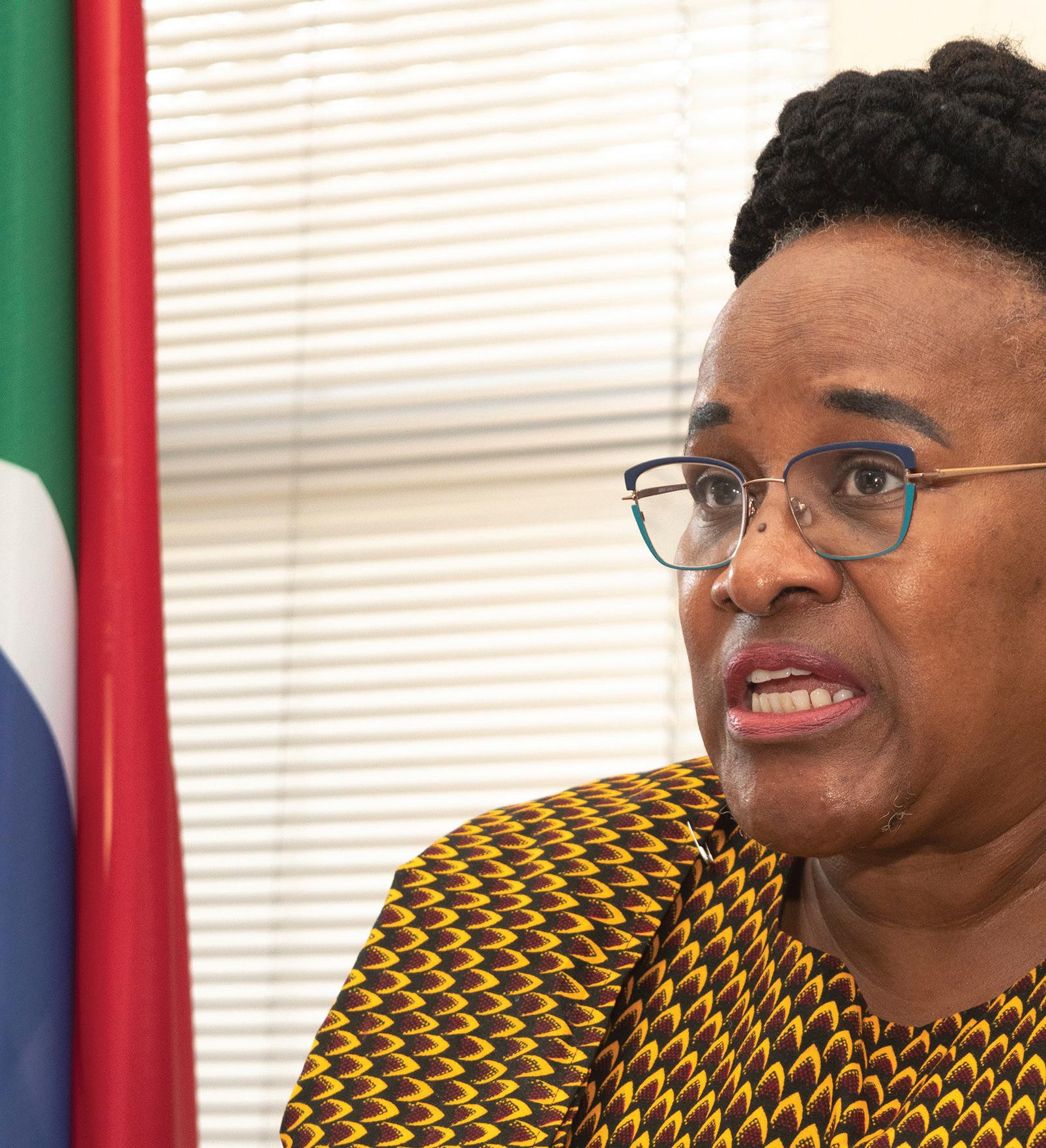
each week has a sub-theme aligned to the three priorities of Government.
While the first week will focus on a growing economy, aligned to the empowerment of persons with disabilities, the second week will hone-in on advocating for the inclusion of every child with a disability.
Week three will deal with “a working government, a progressive disability rights agenda and the fourth week with creating safer and secure communities for people with disabilities.
The DG said all departments were required by the White Paper on the Rights of Persons with Disabilities to meet the 7% employment equity target for persons with disabilities by 2030.
“Cabinet directed that all government departments should achieve the target
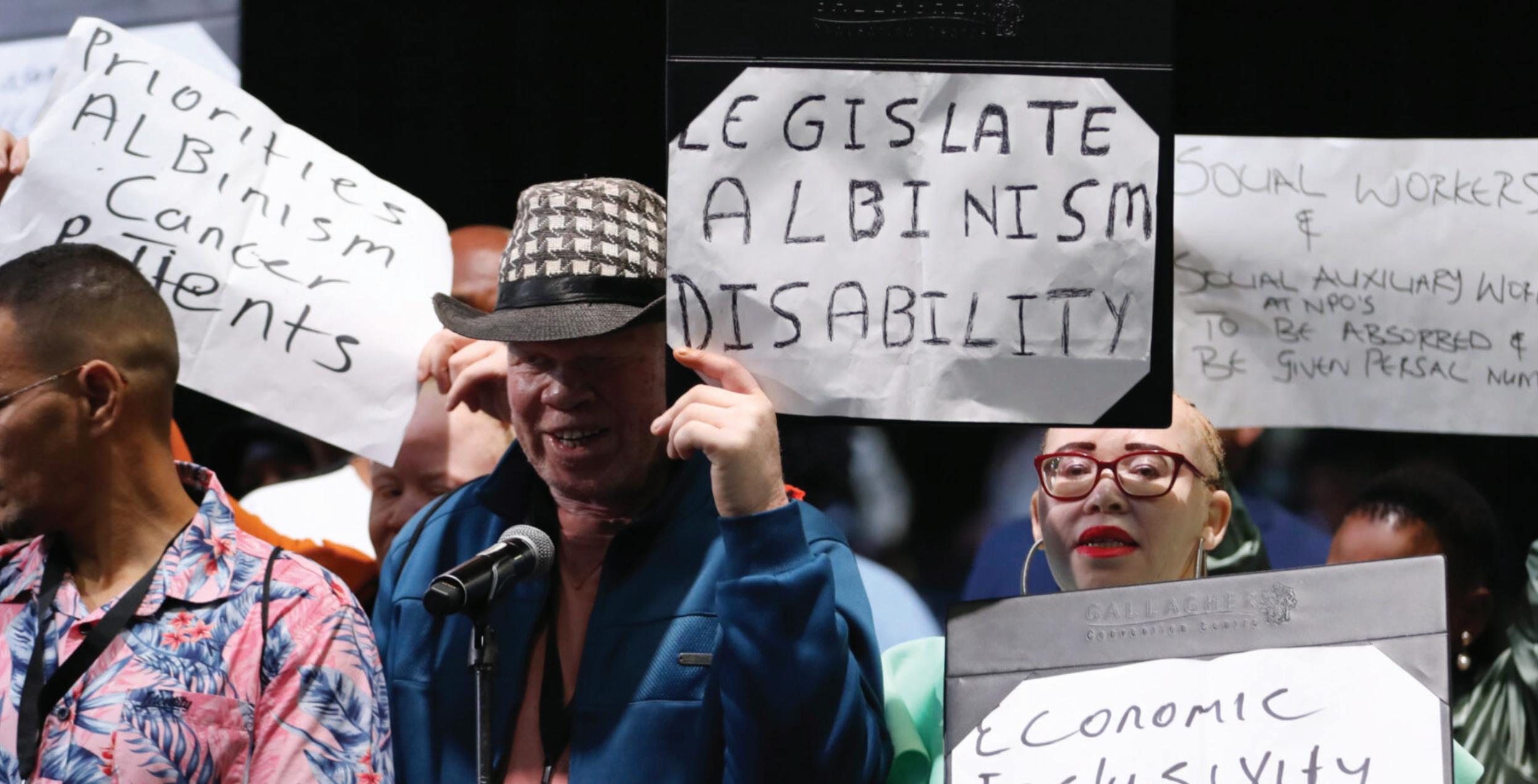
of 3% employment equity by 2024/25. The challenge remains the high unemployment rate in South Africa as well as the lack of reasonable accommodation provisions at the workplace which comes at financial cost that is not budgeted for,” she said.
In her recent interview with Public Sector Manager magazine, she expressed the necessity for government procurement policies to favour businesses owned by people with disabilities, aiming for them to access 7% of public procurement.
She also mentioned that Sector Education and Training Authorities (SETA) have specific targets for training persons with disabilities, while the Small Enterprise Finance Agency (SEFA) and the Department of Small Business Development (DSBD) have es-
tablished special funds to support this group of citizens.
The DG highlighted some of the things that have been done in the country over the past 30 years to promote and protect the rights of persons with disabilities.
Government has published guidelines through mandatory strategic frameworks on disability to guide all duty bearers, including the private and public sectors, on measures to put in place to ensure an accessible, enabling, conducive environment for persons with disabilities to operate equally and equitably.
“Relevant legislation and institutional frameworks are in place to advance and empower persons with disabilities. Disability is no longer viewed as a medical
and welfare issue but as a human rights matter
“Several initiatives at national and provincial government levels, for example, the Department of Agriculture, Land Reform and Rural Development’s (DALRRD) policy specifically targets persons with disabilities in post settlement programmes,” she said.
The Department of Justice and Constitutional Development by improving reasonable accommodation in 70 court buildings, has improved access to social assistance and disability grants; special schools and enrollment of learners with disabilities has almost doubled between 2002 and 2020.
The DG highlighted that the increase in disability grants from 804,249 in 1997 to 1,035,437 in 2023 illustrates the significant
progress made in providing essential financial support for individuals with disabilities. She outlined expanding on her department’s priorities for the next five years on programmes dedicated to women, youth and persons living with disabilities, saying;
“Focus is on a more local level to unlock mainstreaming in programmatic inclusion that includes training for public servants, budgeting for inclusion, and employment,” she said.
Maluleke concludes with a call to action for public servants:
“A true public servant is an employee that holds himself or herself to high standards of professionalism and ethics, and who serves the public with integrity, loyalty, impartiality, and objectivity,” she said. ❖

Despite his numerous achievements, a trailblazing biochemist at the Council for Scientific and Industrial Research (CSIR) is still determined to continue working hard and explore new avenues in the field of science.
In fact, Zama Duma’s determination is such that he has set specific targets that he is actively working to achieve.
At just 30 years old, the research scientist at the CSIR is already earning plaudits from not just his employer but also from the general public.
Public Sector Manager magazine recently interviewed the soft-spoken scientist, who elaborated on his entry to the world of science.
“It was passion, more than anything, that led me to the science field... I am from the township. We did not have exposure to all these careers but we were later afforded opportunities in school when we would attend things like open days at universities,” he reminisced. Being a bright pupil gave him a
distinct advantage in gaining recognition. In 2012, while in Grade 11, Duma received a scholarship from the mining group, Impala Platinum. It enabled him to attend specialised private extra lessons in mathematics and physical sciences. The collaboration between the mining giant and Star College allowed three topperforming learners from selected schools to attend the private Saturday school classes at the institution.
“I did that from Grade 11... it included boot camps, preliminary exam preparations, exams... etcetera,” he explained.
While his initial goal of becoming a dentist was unsuccessful after he was not accepted at a medical school, he quickly embraced biochemistry, his second option.
“Fortunately, I was able to fulfill the dream of becoming a biochemist. I followed this path because I had always been intrigued by science and how you can take it from a textbook to the real world,” he added.
His undergraduate studies were financed by the National Student Financial Aid Scheme while his
postgraduate studies were funded by a bursary from Sasol. He holds various degrees, including a Bachelor of Science, Bachelor of Science (Honours) and Master’s in Chemistry from the University of the Witwatersrand. He is currently pursuing a Doctor of Philosophy in Chemical Engineering at the University of Cape Town.
His career commenced with an internship at Sasol the integrated energy and chemical company, which was part of his bursary funding requirements.
“It was while I was at Sasol that I realised that my passion is to work on sustainable technology. I do not want to work on technology that pollutes the environment,” he said. It was at the point that he resigned to pursue a master’s
project, focusing on green technology and hydrogen in South Africa at the CSIR in 2020. Two years later, he joined the organisation on a permanent basis.
His work at the institution is focused mainly on catalysis and materials science in which he converts carbon dioxide to green methanol and other useful products such as feedstocks for the petrochemicals sector.
“These are materials, or even compounds, that are used to accelerate the reactions. Most chemical processes lower the activation energy and make the reaction to progress easier. This would involve things like how the Sasol Secunda facility operates... as the largest source of carbon dioxide emission in the world, it uses a lot of catalytic processes. These are convention technologies that take place in the presence of a catalyst. That would include things like
the reaction of most gases to make things like green methanol,” he emphasised.
Reflecting on his journey and the accolades he has received, he considers his election as an executive committee member in the Catalysis Society of South Africa to be the pinnacle of his career. The organisation promotes the advancement of catalysis amongst academia and the chemical industry in the country.
In 2022, he was honoured as the best master’s student in the CSIR’s chemicals cluster.
In June 2024, he was featured in the Mail & Guardian’s 2024 Young 200 list. Duma’s meteoric rise has caught the attention of many, leading the young scientist to turn down lucrative job offers from as far afield as France.
“The CSIR tried their hardest to keep me here. To be an executive at the age of 28 takes
its toll on you. Firstly, because you do not really have a firm grasp of what is really going on until at least year two. I have had to adjust and realise all the expectations and just the magnitude of how serious that was. Most of the people I serve with on the executive committee are professors in their mid-40s to 50s,” he said, adding that the plaudits were proof that all his work was not in vain.
Crystal-gazing about his future, Duma expressed his aspirations to pursue entrepreneurship or take on a prominent role in either a private or public sector institution.
He highlighted an upcoming initiative involving a non-governmental organisation focused on raising HIV awareness in indigenous languages, particularly in remote rural areas. Duma also highlighted his ambition to contribute even more significantly to the country in the future through this and similar initiatives. ❖
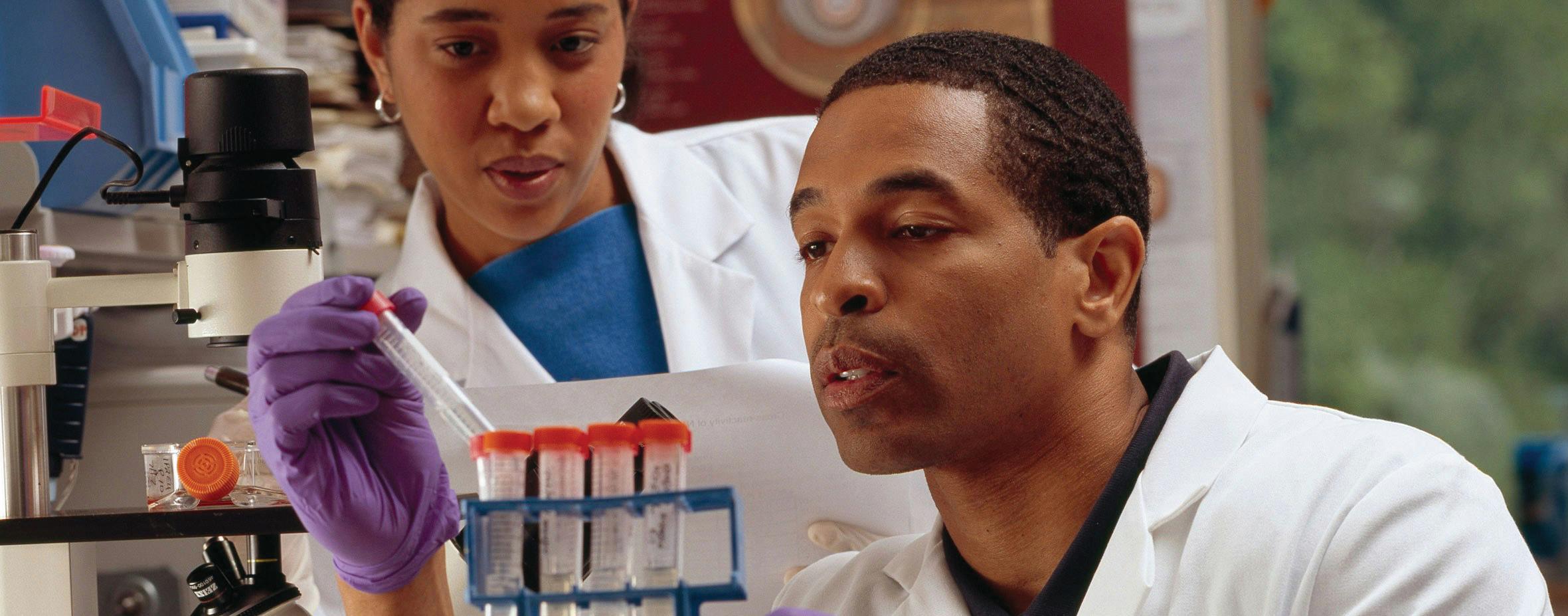
Writer: Sihle Manda

Despite recently successfully extricating the Land Bank from a financial quagmire, there is no resting on his laurels for Land and Agricultural Development Bank of South Africa (Land Bank) Chief Executive Officer (CEO) Themba Rikhotso. His leadership embodies a dedication not only to restoring financial stability but also to fostering a more inclusive and vibrant agricultural sector in South Africa.
The institution’s liquidity position was the proverbial hot potato when he took over the reins almost two years ago. The bank remained in a debt default position until September 2024, after concluding a debt restructuring solution with its lenders. It was a resolution that required cunning dexterity.
Rikhotso’s vision for the Land Bank is clear.
"I want to leave a strong Land Bank that has visibly supported
the agricultural sector," he tells the Public Sector Manager magazine (PSM) during a recent interview.
One of his key goals is to address the dualism in South Africa’s agricultural sector, where a small number of large commercial farmers dominate while many black farmers struggle.
Rikhotso stresses the need to transform the sector to increase
the participation and success of black commercial farmers, ensuring they represent the demographics of South Africa.
"The status quo cannot be accepted; we must transform the sector," said Rikhotso.
With a strong foundation, strategic partnerships, and a focus on sustainability, Rikhotso envisions a Land Bank that leads the development of South Africa’s agricultural sector.
"We want to be a true leader
in this space," he said.
The Land Bank, an institution central to South Africa’s agricultural financing, has faced numerous challenges in recent years – from technical defaults to the loss of key talent.
The CEO emphasises the resilience of the bank despite its financial setbacks.
"Since the bank has been in default, we have managed to make a profit year after year," he noted, highlighting the technical nature of the default. The challenges stemmed from the bank’s inability to pay off certain loans, particularly those where lenders accelerated payments, triggering what is known as cross-default clauses. This meant that all the bank’s loans became immediately payable.
"However, because of the strength of the bank and its balance sheet, we have been able to make profits year after year," Rikhotso asserts.
When the bank went into default, it lost a significant amount of talent, creating a challenge in its ability to execute its mandate.
The CEO added that rebuilding the bank's capacity to execute had been challenging, but they had made significant progress and reached important milestones. He acknowledged that while they had begun to implement their plans, the execution rate remained below expectations.
“Rebuilding confidence also remained a challenge, as was the quality of the bank’s loan book,” he said.
“But with the work that we did last year, we are starting to build on our confidence. We are starting to see some of the good farmers coming back.
He, however, noted that there was still a high percentage of non-performing loans and that addressing these, particularly for clients who continue to struggle, was one of the bank's biggest challenges.
At its prime, the Land Bank contributed R45 billion to the country’s agricultural debt finance, which represented a share of approximately 28% of the South African farming debt.
Since the default, the bank has repaid over 60% of its debt. This was achieved through cash proceeds from a deliberate re duction of the bank’s loan book – from R45.2 billion in March 2020 to R17 billion in June 2024.
Between April 2023 and April 2024, the Bank disbursed R980 million in grants and loans to farming operations.
With all the recent progress, Rikhotso is adamant that
opportunities continue to exist within the country’s agricultural sector, adding that a substantial portion of arable land included in the land reform programme remains unused.
“There is a huge amount of opportunity for us to work with the Department of Agriculture and put up programmes that will put some effectiveness in the use of that land” the CEO said.
He added that there are substantial opportunities in collaborating with smallscale farmers, particularly in providing them with market access and developing grower programmes to connect them with major agricultural product
Land Bank lies in becoming the orchestrator of the agricultural ecosystem, supporting farmers in this process. While they are already working towards this goal, the CEO acknowledged that it will require strategic partnerships.
Focusing on some aspects of common interest, he pointed to The Agriculture and AgroProcessing Master Plan, which he said was a “100% alignment” with the Land and Agricultural Development Bank Act, 2002 (Act 15 of 2002).
“We intentionally check our alignment with it on a regular basis. We also worked very closely with the then-Department of Agriculture, Land
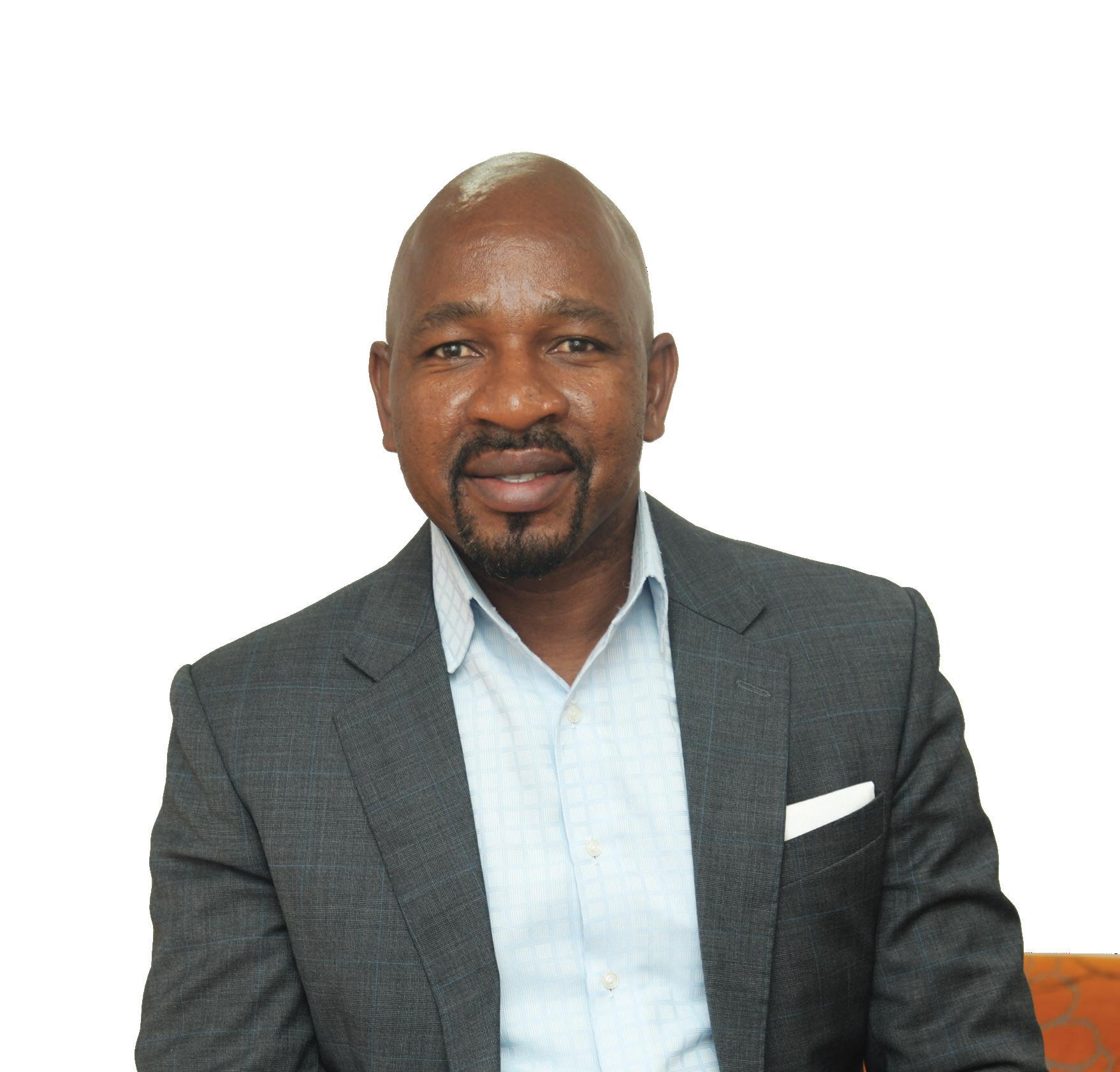
“We also work closely with National Treasury on the National Development Plan, the Sustainable Development Goals and ensure that everything we do aligns to the various programmes, plans and policies of government,” he said.
One of the bank’s notable achievements is its success with the blended finance programme, aimed at supporting emerging black farmers.
"Last year, we approved R1.5 billion worth of blended finance applications and disbursed more than 90% of that to farmers," Rikhotso explained. The programme has supported farmers with land access, mechanisation, financing and working capital requirements, enabling them to build sustainable agricultural enterprises.
Rikhotso proudly describes these initiatives as genuine success stories, noting that the bank has helped emerging black farmers become competitive commercial farmers.
"Some of these farmers are now exporters, and they are competing with some of the best commercial farmers," he added. This success highlights the potential impact of tar-
geted support and strategic financing.
To ensure efficiency, the Land Bank has regionalised its operations across all nine provinces, with each having a provincial head office and multiple branch offices in agricultural hubs. This setup allows
"Some of these farmers are now exporters, and they are competing with some of the best commercial farmers."
for decentralised decisionmaking, enabling quicker response times.
“We created three layers of decision-making to be nimble and move with speed,” he said. Provincial offices approve loans up to R10 million, while regional offices handle applications up to R20 million. Only loans above R20 million are
escalated to the head office. This tiered approach ensures that smaller loans are processed efficiently, empowering regional offices to support local farmers effectively.
The bank’s credit policy and processes remain consistent across the board.
"We have our credit monitoring processes in place to ensure that all applications are assessed rigorously," Rikhotso added. The aim is to ensure that only viable farming enterprises receive support.
Rebuilding the Land Bank's internal capacity has been a critical focus area. Even after losing key staff, the institution managed to retain and upskill existing employees.
"We had staff who were flexible and adaptable, and they stepped up when we needed them," Rikhotso notes. The bank’s board and executive committee (Exco) implemented interventions to support and rebuild organisational capability.
As part of these efforts, the Land Bank underwent a significant organisational restructuring, including a review of its
operating model in 2023/24. This restructuring aimed to ensure the bank is strategically positioned to support its mandate effectively.
Rikhotso, who joined the Land Bank in April 2023, holds a Bachelor of Commerce degree, a Master in Business Leadership and has completed an International Executive Development Programme with GIBS, as well as an Executive Development Programme with Wharton University in the United States of America. He boasts 20 years’ experience in the financial services sector, and extensive executive management experience offering solid retail and corporate banking skills, alongside experience in funding agricultural projects across the continent. He has held various leadership roles, including Executive Head of Sales, Transaction Banking and Investment Banking at the Standard Bank Group and Head of Transactional Banking at CFC Stanbic Bank in Kenya. ❖
#endGBVF #StopGBVF @PresidencyZA @GovernmentZA Sign the pledge here https://www.stateofthenation.gov.za/endGBVF


We have placed the growth of an inclusive economy and the creation of jobs at the centre of the work of the Government of National Unity. This is taking place alongside actions to tackle poverty and the high cost of living and to build a capable, developmental state.
These priorities are uppermost in our minds as we mark Transport Month this October. The efficient, safe and affordable movement of people and goods around the country is essential for economic growth and jobs. Goods that are produced by our workers need to move from mines, factories and farms to our country’s markets and international markets through our ports. People need to be transported to workplaces, clinics, hospitals and schools. When our transport system works well, then the cost of doing business is lowered and our country’s products and
services are more competitive. Affordable public transport helps to reduce the cost of living for millions of South Africans. Our public transport system is in a poor state due to a lack of investment over many years, as well as theft and vandalism, especially during the COVID-19 pandemic. Without affordable and reliable alternatives, households spend a large proportion of their income on transport.
Fixing public transport, therefore, plays a big role in reducing poverty.
A particular area of focus for this administration is the development of rail as the backbone of transport in South Africa.
Much progress has been made in restoring urban passenger rail to full service. The Passenger Rail Agency of South Africa has to date restored 31 out of
40 priority rail corridors back to operation. By March this year, 40 million passengers were using public trains, nearly three times more than the year before.
Last year, we set up the National Logistics Crisis Committee (NLCC) to address our logistics challenges, particularly in a number of goods transportation corridors. Transnet, business and labour are working together to increase the volume of freight that is carried on our rail corridors to be transported to our ports. The NLCC is supporting the implementation of the Freight Logistics Roadmap. The roadmap covers areas such as the security of the rail network, operational improvements and capital investment.
It is expected that Transnet will finalise a Network Statement by the end of the year, which will facilitate access by third-party operators to our rail network. This will help to increase the
volume of goods carried by rail. By 2029, our rail lines need to be transporting at least 250 million tonnes of freight a year.
While we attend to the immediate challenges, we are also looking ahead.
Work is underway to develop a National Rail Masterplan that will lay out the future for rail in South Africa. Among other things, the Masterplan will cover passenger rail in our cities, including rapid rail. It will also cover high speed rail over long distances between centres. The substantial work required to develop the Masterplan is expected to be completed by the end of next year.

The achievement of our ambitious targets will require considerable investment in infrastructure, rolling stock and signalling. We will need to make use of new technologies, including artificial intelligence, in areas like cargo

tracking, passenger ticketing and securing critical infrastructure.
The government alone will not be able to carry the scale of the investment needed. That is why we are working to mobilise private sector investment in rail and port operations, while ensuring that the infrastructure remains state-owned.
Not only does the development of rail reduce the cost and improve the reliability of transport for both people and goods. It also makes an important con-
tribution to the reduction of our carbon emissions. Together with support for new technologies like electric vehicles and hydrogen fuel cells, we can make transport in this country far cleaner and more environmentally sustainable.
While we improve the reach and performance of rail, we need to properly integrate all modes of public transport so that passengers can move seamlessly from one destination to another. Transport planning and policy
development must, therefore, take account of the contribution of all forms of transport. The Department of Transport is, for example, reviewing the approach to funding bus rapid transport programmes in municipalities and the taxi recapitalisation programme.
While we have achieved important progress in restoring our freight and passenger rail systems, we have much further to go. We will need far more investment, more effective use of
technology and closer collaboration between all stakeholders. We are now on the right track towards a public transport system that is safer, more efficient and more affordable – and that supports the growth of an inclusive economy, reduces poverty and creates employment. ❖
*The message was first published on 28 October 2024.

While technological advancements are reshaping our economies, industries and societies at an unprecedented pace, inclusivity must be at the centre of digital transformation. These were the sentiments expressed at the International Conference on Theory and Practice of Electronic Govern-
ance (ICEGOV) 2024.
The conference was hosted by the Department of Public Service and Administration, the Centre for Public Service Innovation and the Wits School of Governance (Wits University) in partnership with the United Nations University.
The annual gathering to bring
together academia, governments, international organisations, civil society and industry to share the latest insights and experiences in the theory and practice of Electronic Governance (referred to as Digital Governance) took place in October at the Council for Scientific and Industrial Research Convention Centre, Pretoria.
“Artificial intelligence (AI) is at the heart of [digital] transformation, offering immense potential to innovate and address some of the world’s most pressing challenges”, said Professor Tshilidzi Marwala, Rector of the United Nations University.
Marwala said difficult questions need to be asked: “How do we govern this rapidly evolving field responsibly and ethically? How do we push the boundaries of innovation while ensuring that human values, rights and dignity remain central? How do we foster progress while safeguarding
against the risks AI presents”.
Acting Executive Director of the Centre for Public Service Innovation, Lydia Sebokedi, said she learnt a lot from the research presented at ICEGOV from different countries.
“It gives us an opportunity for government to use this evidence to build better policies and frameworks. We need to move with speed... as Professor Marwala indicated the pros and cons of AI, that struck me that we must use AI but be prudent about how we use it. We need to make sure that our systems are secure, we share data openly in government to better help our citizens,” said Sebokedi.
Marwala added that AI should be included in strategies for achieving the Sustainable Development Goals (SDGs) but must be done responsibly and should not exacerbate the inequalities these goals are seeking to eliminate.

“It is estimated that AI could contribute to 134 targets across 79% of all SDGs, accelerating progress on issues from poverty eradication to climate action. Data-driven development, for all its promise, brings new risks.
“This year alone, over 2 billion people will have participated in democratic elections worldwide. Yet we have seen how technologies like deepfakes can undermine the integrity of these processes, posing serious threats to global democracy. The challenge, then, is clear: comprehensive governance frameworks are essential to protecting our systems and institutions,” he added.
Human values and rights as well as access were key to the deliberations.
Alfred Mashishi, Deputy Director-General at the Department of Communications and Digital Technologies, explained that government utilises AI for several purposes, including monitoring energy systems,
evaluating disaster situations, automating services for smooth access by citizens in sectors like education and health, as well as for diagnostic and analytical tasks.
Marwala also pointed out that addressing bias in AI is both a technical and moral imperative. He urged governments and institutions to take proactive measure to ensure the use of diverse datasets.
"Inclusivity must be at the heart of AI development – this is not only an ethical issue but one of economic and social justice."
Speaking at the same event, Wits Chancellor, Dr Judy Dlamini, made a passionate plea to consider marginalised people who need to be included in the digital transformation process.
“I want you to notice the missing residents of Mamelodi township... notice the missing rural
dweller. Notice the loud absence of the one who could not afford the conference registration fees and transport to be here.
“Notice the unconnected, unaware, unskilled millions in the global south who are living alternate realities to many of the digital dreams that we are discussing here. Notice the missing ones that do not trust in digitalisation,” said Dlamini.
There were calls from both Dlamini and Marwala to ensure that African languages and indigenous knowledge are also factored into digital tools.
“That little girl or Gogo (grandmother) who cannot speak here for herself truly bothers me, whose language and indigenous knowledge is ignored or excluded make me feel like an accomplice in her exclusion. The thing is it does not have to be that way,” she added.
Meanwhile, Marwala shared his firsthand experience in exploring the challenges faced by AI lan-
guage recognition technologies in understanding low-resourced languages, such as Ju/’Hoansi San, spoken by an indigenous group in Southern Africa.
“Being spoken only by tens of thousands, this language is underrepresented in digital contexts, leading to AI systems that struggle to capture its nuances,” Marwala explained.
Speakers also urged governments to introduce policy interventions to close the digital divide, especially with regards to gender. According to a report shared by Global Digital Inclusion, Connected Resilience, globally countries stand to lose over $500 billion in the next five years as long as women stay unconnected or experience a lack of access to the digital world.
*Govender is a Communications Manager at the Wits School of Governance

In the week marking 100 days in office for the Government of National Unity (GNU), Home Affairs Minister, Dr Leon Schreiber, announced a new fiveyear strategic vision to turn Home Affairs into a digital-first department during the 2024-2029 term of office.
This new approach, dubbed Home Affairs @ home, envisions an ambitious new future, where no one has to visit a Home Affairs office in-person to access routine services.
The vision directs that over the next five years, all of the department’s services must become fully automated, digitised and offered online at the fingertips of clients from the comfort of their own homes.
Instead of going to Home Af-
fairs, the vision, under the GNU, is to bring services to citizens, at home.
Clients in need of routine civic services, such as obtaining or replacing an identity document, passport or any certificate, must be able to apply online through a secure platform linked to their unique biometrics, in the same way that banks and the South African Revenue Service already verifies transactions.
The application will then be processed through an automated risk engine that only requires human intervention in cases where anomalies are detected. All other cases will be processed automatically, digitally and securely.
Once an application is complete, the document applied for should be shipped directly to the door of the client, regardless of whether they live in South Africa or abroad – as is already done in the case of bank cards and vehicle licences. Over time, these vital documents will also be made available in digital format on the client’s secure online profile and in the wallet app on their phone.
Instead of endless paperwork and manual processes, travellers, who want to visit South Africa, will also be required to register a profile on the secure online platform in order to submit an application for Electronic
Travel Authorisation (ETA). The application must be adjudicated instantly, only requiring human intervention if an anomaly is detected by the machine.
As part of the ETA application process, travellers will be required to provide their biometrics to Home Affairs. Over time, this system is expected replace paper-based visas by issuing the traveller with a unique digital code linked to their passport information.
Once they arrive at a South African port-of-entry, travellers will be required to scan their ETA code and provide another copy of their biometric information, which will then be verified against their passport and the information provided at the time of application.
Visitors, who want to extend their stay or modify their status, will be able to submit applications through the same secure online platform for instant adjudication.
Home Affairs @ home will contribute to restoring the integrity of South Africa’s national security. Using the same biometric technology that already secures smartphones, online banking and other critical platforms, the automated risk engine must be able to identify and prevent attempts of identity fraud.
Using the latest machine learning technology, the risk engine will instantly detect fraudulent documents, or documents that have been re-used in multiple applications. Before issuing an outcome, it will also crossreference all applications for visas against domestic and international criminal and other databases.
By integrating biometric information, local and global databases and travel authorisation with the movement control system at all ports-of-entry under the Border Management Authority, the risk engine will notify immigration officials in real time whenever a traveller has failed to exit the country by the time their authorisation has expired. This will make it impossible for travellers who overstay to evade detection, while providing biometric information on all

foreigners in the country to enable instant verification of their status.
“Through the implementation of this vision over the next five years, we aim to enable everyone with an Internet connection to access Home Affairs services online – and it will transform every library or community centre equipped with an Internet connection, into a virtual Home Affairs office.
“While we undertake the process of digital transformation, these reforms will also be supplemented by the rapid advancement of existing partnerships with accredited banks and retailers, to expand the footprint of Home Affairs across the length and breadth of the country without incurring the costs and delays of investing in new brick-and-mortar buildings.
“After years of budget cuts, Home Affairs now only has 40% of the staff required to provide adequate services under the current model that requires
every client to physically visit offices for even the most routine transactions.
“This will make it impossible for travellers who overstay to evade detection, while providing biometric information on all foreigners in the country to enable instant verification of their status.”
enables clients to access our services wherever they are.
“Digital transformation is also essential in order for Home Affairs to play its catalytic role in pursuing the apex priority of the GNU, which is to grow the economy and create jobs.
“In order to attract millions more tourists, as well as the investment and skills our economy desperately needs, antiquated, inefficient and paper-based red tape must go,” Schreiber said. In rolling out this ambitious vision for a re-imagined and digitally transformed department over the next five years, the department will be guided by one central aim: to provide the best possible experience to the end users of Home Affairs services.
“The existing business model is not financially sustainable or future proof, and needs to be replaced by a new model that
"At Home Affairs, each and every one of the 62 million people of South Africa, as well as millions more international visitors, are our clients. It is with them and their interests at the forefront that we will work during the 2024 – 2029 term of office to deliver dignity to all through our vision of Home Affairs @ home,” Schreiber said. ❖
Photos: Faith Action to End GBV Collective
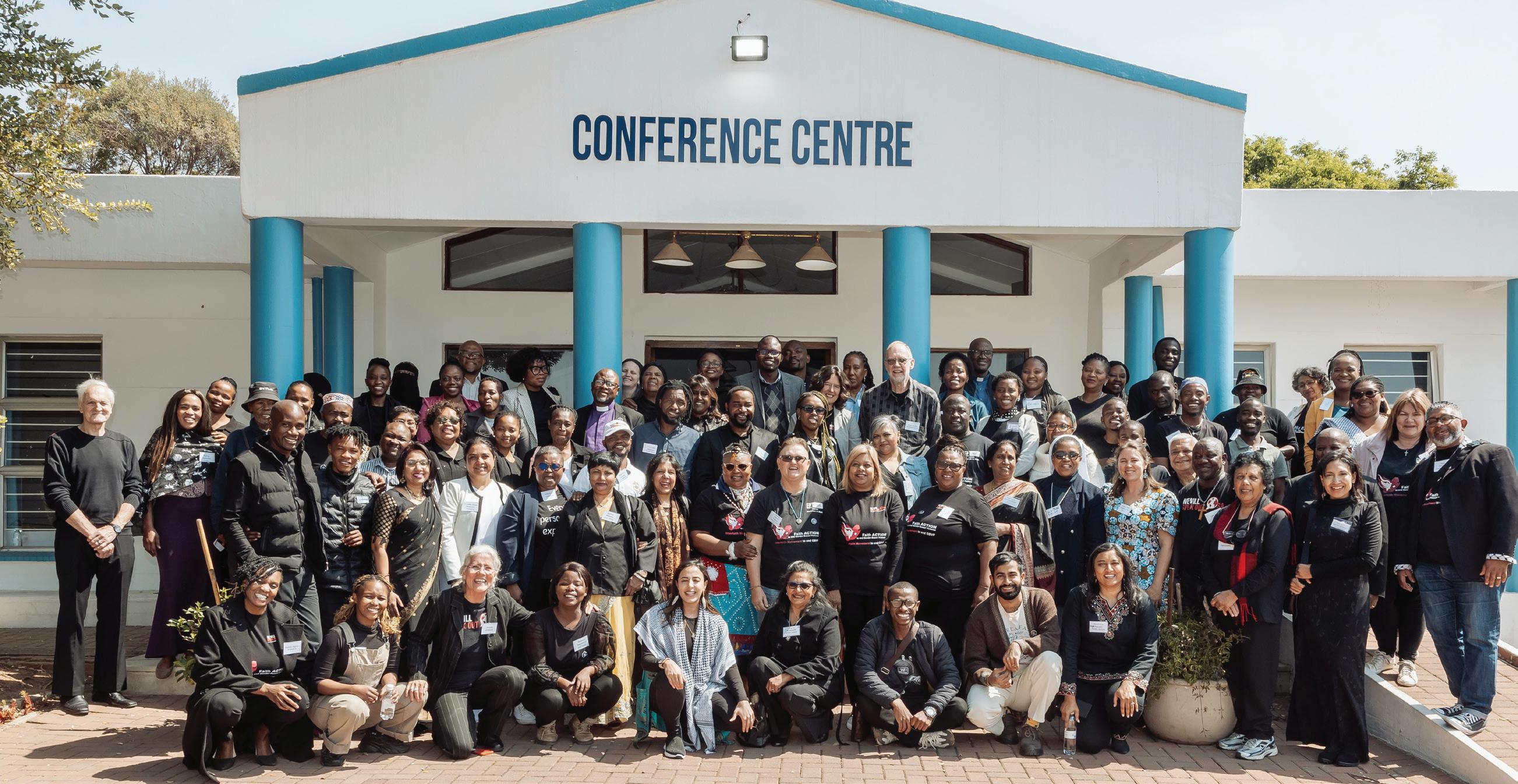
South Africa’s gender-based violence and Femicide (GBVF) crisis is one of the most severe in the world, with rates reported to be “five times higher than the global average,” affecting women, children and members of the LGBTQ+ community in disproportionate numbers.
Every day, stories of sexual abuse and violence unfold, with survivors often trapped in a cycle of silence, shame and fear.
However, a glimmer of hope is emerging as government and faith communities rally together in a unified front to address this scourge.
The collaboration between these two sectors is epitomised by the recent launch of the Interfaith Gender-based Violence (GBV) Prevention and Mitigation Strategy 2024 – 2030. This brainchild of the Faith Action to End GBV Collective and We Will Speak Out South
Africa represents a crucial step towards ending GBVF. The strategy is designed to complement government's overarching National Strategic Plan (NSP) on GBVF. As the first sector to craft its comprehensive strategy, the interfaith initiative aims to bolster Pillar 2 of the NSP on
GBVF, focusing on prevention and social cohesion. This pillar seeks to address the root causes of GBVF by promoting gender equality, tackling harmful societal norms, and fostering cohesive communities that reject all forms of violence. It also contributes to Pillar 1 (leadership, coordination and accountability) and Pillar 4 (Response and Healing).
The collaboration between the State, entrusted with the duty of care for its citizens through law-making, enforcement and ensuring public safety, and faith communities – entrusted with caring for the wellbeing of all God’s people – is vital. In South Africa, where faith is an integral part of daily life for 80% of the population, religious institutions such as churches, mosques, synagogues, temples and traditional healing centres play a critical role in shaping moral values and societal norms. Historically, however, the faith sector has been slow to address pressing social issues like GBVF, with some religious teachings being misinterpreted to justify violence or uphold patriarchal tendencies.
Nompilo Gcwensa, Chair of the Phephisa Survivors Network, once made a poignant remark, “When you are abused, your spirit is attacked”.
The Interfaith GBVF Strategy calls for faith communities to create safe spaces for survivors. Places of worship are to serve
itual abuse, which occurs when the authority of a religious leader or traditional healer is abused to control or harm others, often

as sanctuaries, offering care, counselling and spiritual healing while holding perpetrators accountable. This shift requires a commitment to addressing spir-
justified by distorting sacred teachings.
The new Interfaith GBVF strategy aims to position faith communities at the forefront of
the fight against the scourge, encouraging leaders to harness their perceived moral authority for transformative change. Religious leaders are urged to reflect on their roles and confront harmful interpretations of sacred texts to create safer, more inclusive spaces that challenge harmful cultural and religious norms that allow GBVF to persist and instead promote those norms that promote mutual respect, love, justice and inclusivity.
Speaking at the launch of the strategy, Daniela Gennrich, Coordinator of We Will Speak Out South Africa, described it as a “covenant” to end GBVF, calling on faith leaders to hold each other accountable. “No empty promises,” she warned. “We need to rattle the cage,” she insisted. Gennrich said the spirit of collaboration is essential, as “it encourages faith communities to break free from the silos that have often hindered meaningful partnerships.”
“Survivors should not have to endure additional trauma when seeking help. The medical and legal systems must be equipped to support them rather than subject them to further humiliation,” she stated.
She believes that the normalisation of judgemental attitudes

towards survivors of GBVF and patriarchal religious teachings justifying the ‘natural’ headship of men may contribute to the underlying attitudes which influence how service providers treat survivors. This reflects a systemic failure that often prevents survivors from receiving the justice and support they deserve.
Women, Youth and Persons with Disabilities Deputy Minister Mmapaseka Steve Letsike aptly said at the launch, "We need to roll up our sleeves and work together”. The faith sector has the potential to lead this movement, “using its moral and spiritual authority to transform communities and provide support to the most vulnerable.”
In her address, Letsike said that ending GBVF “requires a whole-of-society and whole-of-
government approach”. While government provides the necessary legal frameworks and policies, she added that “civil society and faith communities have the critical mass to move the needle. Religion is one of the first lines of defence women have against discrimination. The collaboration between government and faithbased organisations is a powerful model for how societies can address GBVF. It demonstrates that change is possible when spiritual and moral authority is combined with political will and community action.”
“The responsibility of combating GBVF does not rest solely with faith leaders. Civil servants, including nurses, doctors, lawyers, magistrates and the National Prosecuting Authority are equally critical”.
Speaking at the same event, Dr Fikile Vilakazi Alberts, Chairperson of the Traditional Health
Practitioners Council of South Africa, admitted that historically, traditional healers "could not be trusted" and had at times, “been complicit in violence and creating unsafe spaces”. She called on the sector to confront those involved in the perpetuation of spiritual violence, stressing the importance of “accountability within the traditional healing community.”
In simple terms, this is a call for government officials and faith leaders to recognise how negative religious and cultural assumptions about ‘normal’ gender power relations and gender roles may be preventing us from supporting survivors in their healing and quest for justice, as well the creation of a world free of hatred, violence and abuse.
For more information on the Interfaith GBV Strategy 2030 or to join the movement through the Faith Action Collective to End
GBV, please contact coordinator@wwsosa.org.za, communication@wwsosa.org.za or call 0724537502 or WhatsApp 084 581 0622. ❖

*Mncube is an author and columnist who won the national 2024 Standard Bank Sikuvile Journalism Award for columns/editorials and the same category at the regional 2020 Vodacom Journalist of the Year Awards.


As South Africa prepares to host the Group of 20 (G20) Summit in 2025, Women, Youth, and Persons with Disabilities Minister, Sindisiwe Chikunga has reaffirmed the country’s commitment to ensuring that gender
equality and women’s empowerment remain central to the global agenda.
The Minister attended the G20 Women’s Empowerment Working Group (EWWG) Ministerial Meetings held in Brazil from 9 to
11 October 2024.
A significant highlight of the meetings was the official handover of the G20 EWWG Chairship to South Africa for 2025, marking the country’s upcoming leadership role in advancing gender
equality and women’s empowerment globally.
During the closing session, Chikunga received the symbolic handover of the G20 Women’s Empowerment Working Group Chairship from Brazil’s Minister
“Chikunga emphasised South Africa’s priority to establish a cooperative banking institution aimed at supporting women-owned small and medium-sized enterprises, fostering economic growth, and ensuring sustainable banking practices” .
of Women, Cida Gonçalves.
This transition took place under Brazil's 2024 G20 theme, “Building a Just World and a Sustainable Planet”.
In her address, the Minister explained that as the incoming Chair, South Africa will focus on three key priorities to ensure a results-orientated EWWG:
⦿ The Care Economy: Addressing the critical issue of unpaid work for women, which has long hindered economic equality.
⦿ Promotion of Financial Inclusion: Emphasizing women’s ownership of land and strategic assets, while ensuring meaningful access to property rights; and
⦿ Gender-Based Violence Prevention: Working to eliminate harmful stereotypes and prevent all forms of gender-based violence against women and children.
“South Africa’s Chairship in 2025 will continue to build on the strong foundation laid by Brazil, while bringing a specific
focus to these critical areas,” Chikunga said.
Chikunga delivered South Africa’s opening remarks as a Troika Member during the Ministerial Meeting, where she highlighted South Africa’s progress in gender representation and women’s empowerment, underscoring the importance of ensuring the social and structural inclusion of women.
The Minister emphasised the importance of protecting the livelihoods of women and ensuring women’s participation in decision-making processes. She also reiterated the need to focus on critical issues, including the inclusion of women in science, technology, engineering and math (STEM) and Artificial Intelligence, as well as their role in climate policymaking, energy transitions, and sustainable development.
Chikunga further called for collective action in addressing systemic inequalities, reaf-
firming that South Africa will champion these issues as part of its G20 leadership.
South Africa will assume the G20 Presidency from Brazil in December 2024.
Meanwhile, the Minister held a series of bilateral meetings with Ministers from various countries, including Brazil, Germany, France, Singapore, United Arab Emirates and the United Nations Educational, Scientific and Cultural Organisation to strengthen partnerships and enhance cooperation on gender equality and social inclusion.
During the discussions with Gonçalves, she congratulated Brazil for its successful G20 Presidency and discussed collaboration in the agricultural sector, with a particular focus on empowering women-owned businesses within the agricultural value chain and promoting sustainable agricultural practices.
Meanwhile, the meeting with German Federal Minister for Family Affairs, Senior Citizens, Women and Youth, Lisa Paus centred on financial inclusion and cooperative banking for women.
Chikunga emphasised South Africa’s priority to establish a cooperative banking institution aimed at supporting womenowned small and mediumsized enterprises, fostering economic growth, and ensuring sustainable banking practices.
The Minister also held discussions with French Minister for Gender Equality and Fight against Discriminations of France, Ambassador Isabelle Lonvis-Rome, which focused on collaboration in advanced oceans economy industries and high-tech sectors, where women are currently underrepresented.
The two nations also explored opportunities to enhance women’s participation in STEM fields. ❖

While the media glare is on the Russia-Ukraine war; the genocide in Palestine, the conflict in Sudan, the war in the eastern Democratic Republic of Congo and conflicts in the Sahel are as good as footnotes.
These comments were made by International Relations and Cooperation Minister Ronald Lamola, who expressed concern that not enough attention is being given to conflicts in Africa.
“We must take up our responsibility as Africans to help end these wars. We should work with external and international friends
who act bona fide to end the war. Admittedly, this is not easy.
“The presence of unconventional participants on both sides, including mercenaries, foreign volunteers, special forces, and paramilitary squads, has made Africa a place for proxy wars,” said the Minister as he delivered a keynote address at the Mapungubwe Institute for Strategic Reflection (MISTRA) Conference in Sandton recently.
The Minister used the platform to reiterate South Africa’s commitment to the maintenance of international peace and security, promotion of human rights and
sustainable development.
He said he was concerned that it was now easier to fund wars than to support development, adding that economic, financial and cyber warfare, as well as artificial intelligence, have been “weaponised” and used on a large scale.
Lamola told delegates that the world was in a “grievous interregnum, and transitioning to the new is that dangerous”.
“We are experiencing a proverbial ‘crisis moment’ in world affairs, which could easily become a ‘moment of calamity’.
“In this dangerous geopolitical
moment, the champions of the liberal international order generally refuse to accept any notions of decline and would resist any attempt to emerge an alternative, least of all one from the Global South.”
Meanwhile, he stressed that geopolitical rivalry over people’s suffering was serious.
“This is most evident in Sudan, where the conflict has created a humanitarian catastrophe unlike any other.”
However, he believes that South Africa’s elections beckon hope for democracy and that the way the Government of National
Unity was formed is a model for democracy worldwide.
“There comes a time when it is not absolute power that defines us but our collective ability to resolve our challenges and build a foundation of new frontiers for future generations.”
The Minister is of the view that the world is witnessing the making of a post-Cold War, with all the hallmarks that it could become an “unimaginable hot war”, with the Middle East as its centre point.
“Turbulence, anarchy and combustion are the order of the day.”
He believes that the Middle East crisis is becoming a prover-
bial shift in the global balance of power in front of our very eyes.
“What started as plausible evidence of ‘genocide against the people of Palestine’ is now transforming into a real regional war that will have long-lasting ramifications for global peace and the economy and Africa in particular.”
Lamola pointed out that those who were once at the heart of multilateral order are now at the forefront of undermining them.
These, he said, include strategic pillars such as the Bretton Woods Institutions, the United Nations (UN), and the General Agreement on Tariffs and Trade.
“Imagine what the reaction of the world would be if an African
state declared the UN SecretaryGeneral a persona non grata like Israel did.”
This is after Israel’s Foreign Minister, Israel Katz, announced on X that he had declared UN Secretary-General António Guterres, persona non grata or banned from setting foot in Israel.
“[The] Russia-Ukraine war, the genocide against Palestinians, trade wars that result in greater challenges in the global economy, and wars raging in Africa, with our continent becoming the theatre for proxy battles, all point to this moment of deep global crisis.”
He said BRICS was determined to play this counter-balancing
role for the development of the Global South.
BRICS originally consisted of Brazil, Russia, India, China, and South Africa. It has since expanded to include Ethiopia, Iran, Egypt, the United Arab Emirates and others.
“After the 2023 expansion, especially to members from the MENA [Middle East and North Africa] region, BRICS is a real force to be reckoned with.
“We will ensure that it does not take its eyes off the peaceful settlement of disputes, the transformation of global multilateral institutions, development finance and the agitation for a more equitable global order.”
– SAnews.gov.za

Writer: Dr Darion Barclay, Head of Department, Gauteng Department of Co-operative Governance and Traditional Affairs
Municipalities are governed primarily through three pieces of legislation, the Municipal Finance Management Act, Municipal Systems Act and Municipal Structures Act. These pieces of legislation have been promulgated in 2000 except for the Municipal Structures Act that was promulgated in 1998. Developmental local government is a vision for the future form of local government in South Africa. The National Development Plan envisages that by 2030, South Africa will be a state that is capable of playing a developmental role.
The developmental role mandated to municipalities is indicative of the fact that municipalities are no longer confined to the provision of basic services only, but local economic development and human resource
development is also central to the realisation of developmental local government. Developmental local government must play a central role in representing our communities, protecting our human rights and meeting our basic needs. It must focus its efforts and resources on improving the quality of life of our communities, especially those members and groups within communities that are marginalised, such as women, persons with disabilities and poor people who are unable to pay for services.
Since 1994, South Africa has embarked on an ambitious project of state formation and building; not least in the local government sphere. In 1998, government published the White Paper on Local Government and introduced a series
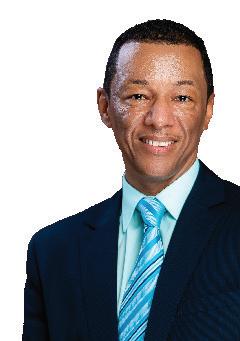
of laws, policies and support programmes to direct the establishment of local government as a distinctive, interrelated and interdependent sphere of government. Great strides were made in establishing municipal systems and processes, as well as in strengthening and building institutional capability including public participation processes.
The 1994 democratic elections, the promulgation of the Constitution of the Republic of South Africa, 1996, the White Paper on Local Government and the introduction of the Reconstruction and Development Programme in 1994 were watershed moments in South African history. These propelled South Africa towards
becoming a developmental state and set the country on a trajectory designed to overcome the socio-economic dimensions that disadvantaged the poor. However, poverty, unemployment and inequality still remain rampant in South African society, a quarter of a century on. Developmental local government will be possible only if private business, municipalities, communities and civil society organisations are all committed to the transformative agenda put forward by the Constitution, the White Paper on Local Government and the Municipal Systems Act of 2000. Former Co-operative Governance and Traditional Affairs Minister Thembi Nkadimeng said in order to achieve good governance, there is a need to define a clear line between political
and administrative roles through proper systems and policy development. In the Fifth Administration, former Premier David Makhura indicated that service delivery at both provincial and local levels will be a distinguishing feature of his administration, introducing the Ntirhisano programme, where departments will work with communities to restore trust in government and deliver services.
The state of local government finances, delivering of services and payment for services has been under scrutiny for the last decade and whilst many governance and policy reforms have been introduced to curb spending, the National Treasury outlined that the state of local government finances remain a significant risk to service delivery and the fiscus at large. The servicing and reduction of debt service costs, reduction of wastage in the form of wasteful, fruitless and irregular expenditure should be at the forefront of governance innovation.
The quality of life index (QoL) 2020/21 signifies that despite various forms of support, results from the survey show that the Covid-19 pandemic has taken a toll on people’s physical and psychological wellbeing. Self-reported health, overall satisfaction with life, and mental health have all worsened relative to 2017/18. The outcomes of the survey shows a decline in the levels of
service delivery and the level of satisfaction with local government. The QoL Index score for 2020/21 is notably lower than in 2017/18, falling from 64 to 61.
The State of Local Government Report finalised in 2023 demonstrated the inability of municipalities in Gauteng to control their water and electricity losses, which has an adverse effect on
generators from power stations, and electricity cable thefts contributed to increased water and electricity losses.
The outcome of the local government elections in 2021 saw the emergence of coalition governments with 10 out of 11 mu-
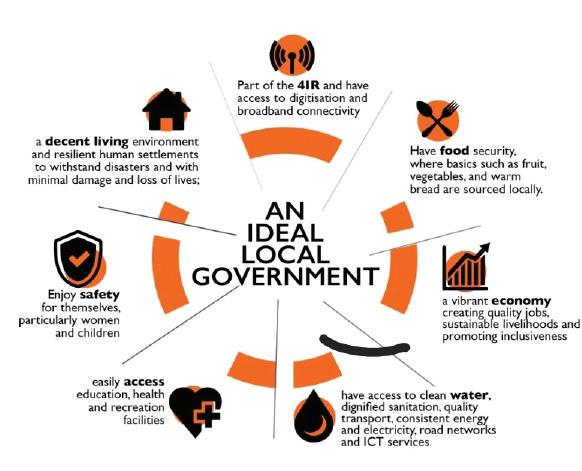
their sustainability and financial viability. Water losses in most municipalities exceed the permitted ranges for water losses (15% to 30%). The factors cited by municipalities as contributing to losses are failure to implement water loss reduction plans, old infrastructure, unmetered areas, water leaks and pipe bursts, and improper billing. Poor infrastructure maintenance, bypassing of meters through illegal connections, poor state of infrastructure, poor billing systems, theft of
nicipalities being hung councils, without an outright majority, with the exception of Midvaal Local Municipality. Service delivery assumed centre stage in South Africa, due to highly publicised wide-spread protests within communities. This increased pressure on municipalities to deliver on their mandates and to ensure effective service delivery. Generally, local municipalities responded to majority of water and sanitation, roads, stormwater and roads maintenance service
delivery requests within 48hours. The level of achievement range between 64% and 92%, while the metropolitan municipalities’ performance was recorded below 50% on response to water callouts but improved response times in other areas. The majority of complaints were as a result of poor maintenance that could have been avoided.
As of October 2023, out of 115 positions for municipal senior managers, 75 positions were filled, and 40 positions vacant. City of Tshwane, Sedibeng District Municipality, Emfuleni Local Municipality, Midvaal Local Municipality and Merafong City Local Municipality, currently have the highest vacancy rates at senior management level. The overall vacancy rate at municipal senior management level is 34%. The high vacancy rates affect institutional stability and general service delivery.
To realise a democratic developmental state in South Africa, democratic developmental local government should not be compromised at local government level and appointed and elected officials should be trained to understand the importance of developmentalism in praxis. A fundamental developmental initiave is the removal of political deployees for administrative and technical appointments so that there is clear separation between the political representatives and officials in a municipality. ❖

As more industries increasingly capitalise on opportunities brought by the fourth industrial revolution, a local online platform called Zettuu is helping African fashion designers to reach global markets.
Established in 2018 by Mbali Ndandani and Portia Nondo, Zettuu only went live in 2021. Because it is an online platform, anyone in the world who buys clothes online can buy designer items by local entrepreneurs, thanks to Zettuu.
Speaking to Public Sector Manager (PSM) magazine at the Proudly South African’s Young Designer Workshop that was recently held at the STADIO School of Fashion, Ndandani said their vision was to build an ecosystem of support for African entrepreneurs, including empowering them to become drivers in manufacturing.
“We started Zettuu to allow creators to focus on creating. We wanted to create access to markets so that African entrepreneurs can reach customers across the globe,” she explained. She added that Zettuu also exists as an incubator that provides mentorship and business strategies to emerging creatives to help them grow their brands.
PSM asked Ndandani to share a few fashion tips for women as we say goodbye to Spring and hello to Summer.
Kimono- R 2 244.76
“This elegant black waxed fabric Kimono is designed with a relaxed and flowing silhouette, adorned with Shweshwe-inspired prints allowing freedom of movement and a true statement piece that combines cultural heritage, style and sophistication,” she said.
Long colourful print skirt with pockets (full flare)R 719.03
“This skirt is inspired by traditional Ndebele patterns and bold colours that celebrate cultural heritage while adding a bold state -

ment to your look. Perfect for any occasion, this skirt effortlessly transitions from day to night, an essential piece for those who appreciate style and cultural expression,” she explained.
Bayi Short PonchoR 1 806.33
“This poncho is inspired by Nwenda which is a rectangular garment with two straps for the shoulders that wraps around the body and is tucked on one

side. This poncho offers a unique blend of modern fashion and rich tradition. Recommended
for its versatility, this poncho can be worn on chilly summer days, providing warmth without compromising on style,” said Ndandani.
Seshweshwe printed addon top and Minimalistic Seshweshwe Print Dress-Shirt (White)- R 438.43
“The inspiration behind the Seshweshwe wrap top lies in its Ba-

sotho roots, where it represents heritage and artistry. Crafted with authentic Shweshwe fabric, known for its vibrant patterns and durability, this piece not only celebrates cultural identity but
also serves as a testament to the craftsmanship of African textiles. It can be paired with the Minimalistic Modern Seshweshwe print dress shirt,” she explained.
Kharetsa Printed Dress - R 2 332.45
“This Basotho blanket dress is a timeless piece that blends

tradition with modern style. It carries cultural significance, as the Basotho blanket is a symbol of pride and heritage. The fabric also offers enough warmth to be comfortably worn on cooler summer days, making it a great option year-round,” she said.
Black and white tribal print add on- R 631.34
“The Tribal Add-On is more than just a stylish accessory; it

embodies the essence of versatility and cultural expression.
Designed for multifunctionality, this piece can be worn as an over-skirt, one-hand top, or poncho, offering endless styling possibilities to elevate your look,” Ndandani concluded. ❖
www.zettuu.com
Email: info@zettuu.com Instagram: @zettuuofficial Facebook: Zettuuofficial


As South Africa continues to celebrate 30 years of freedom and democracy this year, we feature a recipe by Chef Thulile Blou who graduated from the National Youth Chefs Training Programme (NYCTP).
The programme, which aims to equip young unemployed people with skills to become chefs, was established through a partnership between the National Department of Tourism and South African Chefs Association to address the need for cooks and chefs in South Africa’s hospitality industry.
Blou is one of the beneficiaries whose recipe made the cut in the department’s MaSisulu Recipe book, titled #MaSisulu100 in 2018.
“In celebration of MaSisulu’s legacy, I dedicate my scrump -
tious Pumpkin Fritter and Mango Salsa recipe,” said Blou.
Pumpkin Fritter served with Mango Salsa
Ingredients:
⦿ 1 cup pumpkin (cooked and pureed).
⦿ 1 cup flour.
⦿ 2 teaspoons of baking powder.
⦿ 2 tablespoons castor sugar.
⦿ 1 egg.
⦿ ¼ cup of milk.
⦿ Pinch of salt to season.
⦿ Oil for deep frying.
Mango salsa
⦿ 12 ripe mangos (diced).
⦿ 1 medium red bell pepper (chopped).
⦿ 1 cup of red onion (chopped).
⦿ ¼ cup of fresh coriander (chopped)
⦿ 1 jalapeno (seeded and minced).
⦿ ¼ cup of lime juice.
⦿ Pinch of salt to season.
Method: Pumpkin fritter
⦿ In a large mixing bowl, combine the cooked and pureed pumpkin with flour, baking powder, salt and castor sugar.
⦿ Beat the egg and milk together and add to mixing bowl.
⦿ Fold the mixture together until it forms a smooth batter. In a heated pan with oil, fry spoonful of the batter until golden brown on both sides and cooked through for approximately 2 to 3 minutes.
⦿ Remove from the oil and drain on a kitchen paper towel.
Mango salsa
⦿ In a serving bowl, combine the mango, bell pepper, onion, coriander and jalapeno.
⦿ Drizzle with the juice of one lime and mix well. Season to taste with salt.
⦿ Tip: Let the salsa rest for 10 minutes or longer to bring out the flavor.
“You can serve this as starters or enjoy as a light meal,” suggested Blou.
To learn more about the NYCTP, visit: www.tourism.gov.za
The story of Mapunguwe almost feels like a melancholic allegory.
I was there recently, and it felt like I had been teleported to a spiritual realm of epic proportions.
I was part of a group of about 45 people that hopped on a coach bound for the South African National Parks’s (SANParks) fabled Mapungubwe National Park for the fourth Mapungubwe Lecture
Series in October.
The five-and-a-half-hour drive from Pretoria to the Mapungubwe National Park at times felt like an unending lunge to obscurity. While the ride is largely tranquil between the Capital City and Polokwane on the N1 highway, one is jolted to a stark contrast once the trip joins the R521, a stretch peppered with numerous potholes.
Perhaps this was to set the tone
for what awaited us at the destination.
While preparing for the threeday excursion, I purposefully avoided researching the National Park to keep an element of surprise.
The natural beauty of the region is quite enigmatic. Once over the initial shock of the state of the road, my eye was drawn to the

desolated savannah plains dotted by baobab trees and dry rivers that appeared to be gasping for oxygen.
After successfully trekking the Capricorn region, we check-in at Thaba Bolayi Game Lodge, our accommodation for the two nights. The lodge features a stunning backdrop of expansive granite outcrop and lush vegetation. Later that evening we drenched in the cultural festivities of the Balobedu people in the form of traditional and urban dance and music.
The following morning, we headed to Mapungubwe Interpretation Centre, where we boarded a safari vehicle for an adventure trail and a guided bush tour. We were received by an enthusiastic tour guide. On the fringes of the trail, a roaming elephant nonchalantly abandoned her calf and proceeded to navigate the foliage in its wake. A distance away a wandering brahman is briefly stopped in

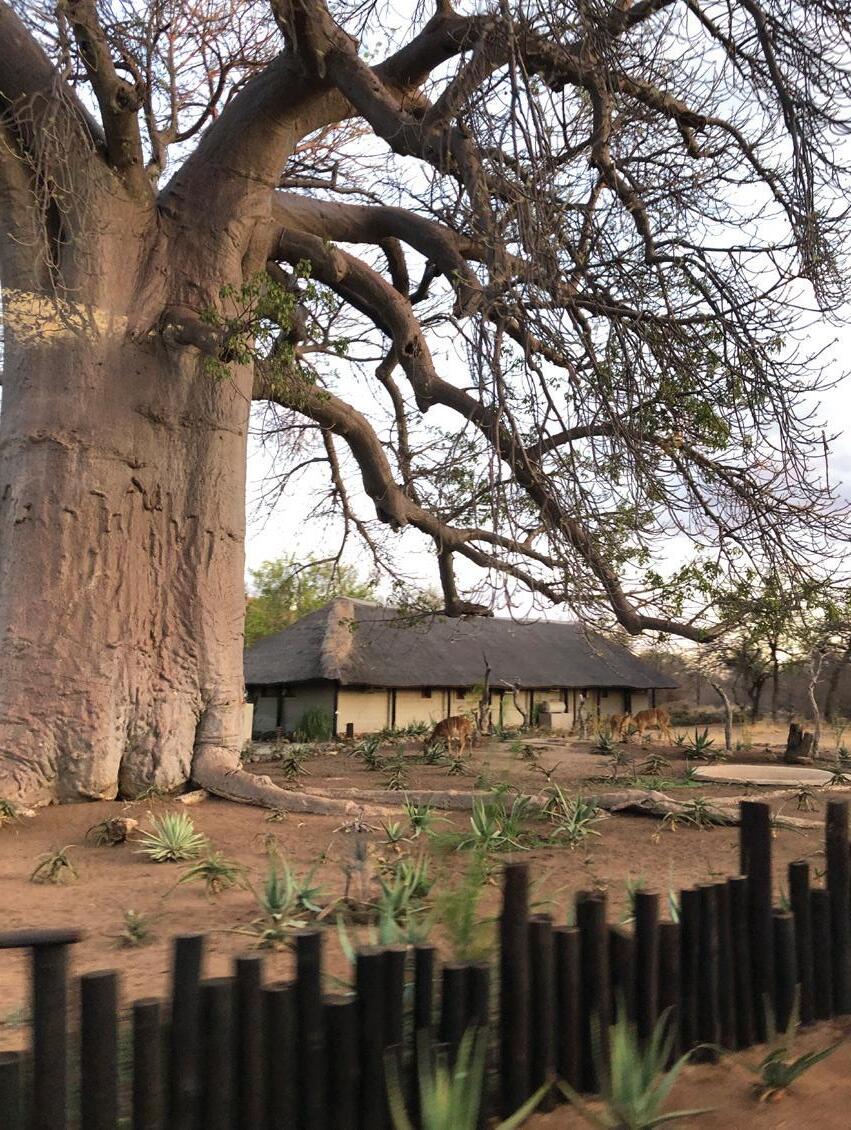
Activities you can enjoy at Mapungubwe:
• Guided morning, sunset and night drives.
• Birding.
• Bush Braais.
• Confluence viewing decks and picnic spot.
• Hikes, walks and trails.
ancient city that sits where the Limpopo and Shashe rivers meet, straddling South Africa, Zimbabwe and Botswana.
His spellbinding narration of the place almost feels like I have been transported to how life was in Mapungubwe all those centuries ago. It was a profoundly melancholic experience.
The ancient city was first

its tracks when it locked eyes with a lone wildebeest that appeared reluctant to engage, despite the temptation.
Our toiling steep hike was interspersed by the guide regaling us with the tale of Mapungubwe, a centuries-old
‘discovered’ in 1932 when an unrelenting white farmer – a certain ‘van Graan’ – finally managed to convince a local to reveal sacred secrets after plying him with alcohol.
According to SANParks, Mapungubwe is considered the first state in South Afri-
ca. The kingdom of Mapungubwe flourished between 1075 and 1220 AD and represents a critical chapter in African history. A legacy that is preserved through archaeological discoveries and rich cultural heritage evident in the now Mapungubwe National Park.
According to the guide, the city flourished by a sophisticated trading centre from around 1200 to 1800 AD. Since 1932, various relics – including pottery, gold and silver – have been found on the four sites at Mapungubwe. Some of these archaeological discoveries, such as mortar stones for crushing grains, stone platforms remain as landmark to this day. The city is believed to have traded with regions such as China and India. Later that evening, Professor Munyaradzi Manyanga from the Great Zimbabwe University delivered a lecture in which he stated that today Mapungubwe and related civilisations in Southern Africa are an “opportunity to find ourse lves”. He emphasise the importance of building regional solidary, learning from the past and using Mapungubwe as an icon to influence regional development. ❖
For bookings email: reservations@mapungubwenationalpark.co.za
